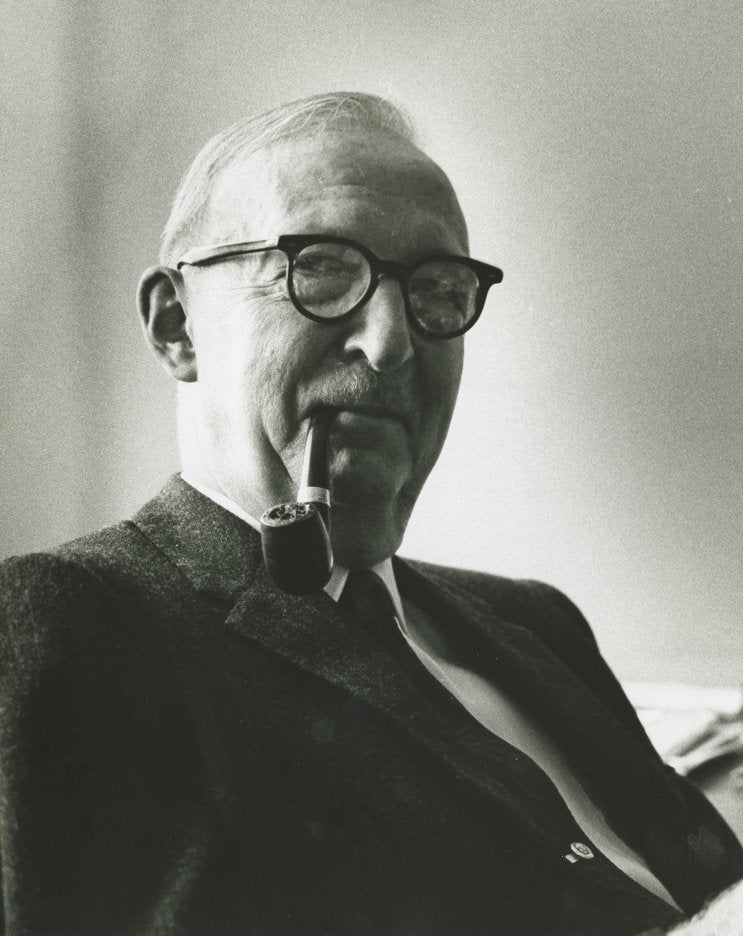Glenn Raymond Morrow was born on April 29, 1895, in Calhoun, Missouri, to Charles Sumner Morrow (1868-1955) and Bessie Bronaugh Morrow (1872-1955). After attending local elementary and high schools, Morrow matriculated to Westminster College in Fulton, Missouri, where he earned a B.A. in 1914. He then went on to earn a M.A. from the University of Missouri in 1919, and a Ph.D. from Cornell University in 1921.
A lifelong scholar of Greek philosophy, Morrow began teaching this subject in 1914 as an instructor at Westminster College. After a brief stint in the United States Army in 1918-19, where he achieved the rank of second lieutenant, Morrow received a fellowship from the American Field Service and studied abroad in Paris, France, in 1921-22. Returning to the States, Morrow resumed his teaching career as a lecturer in philosophy at Cornell University in 1922-23. He then moved on to the University of Missouri, first as an assistant professor, then as an associate professor. In 1929 Morrow left Missouri to take a full professorship at the University of Illinois, where he would remain for the next ten years, except for a sabbatical during the academic year of 1933-34 to study in Munich, Germany, and Vienna, Austria.
Morrow joined the faculty of the University of Pennsylvania in 1939 as a professor of philosophy. At the University’s commencement exercises in June 1944, Morrow had the honor of delivering the commencement address. Also in 1944, he was elected dean of the College of Arts and Sciences, the first midwesterner to hold this office. Morrow resigned as dean (but remained on the faculty as a professor) in 1952 when he was awarded a fellowship from the Guggenheim Foundation, which allowed him to spend the 1952-53 academic year studying Greek legislative and political traditions in Athens, Greece. Morrow was a great believer in the benefit of faculty participation in university governance. To that end he was one of the founding members of the Faculty Senate of the University of Pennsylvania, and served as the Senate’s chair in 1958-59.
Morrow maintained an active life outside the university setting as well. A member of the American Philosophical Association, he served as president of the Western Division in 1939-40, and the Eastern Division in 1953-54, was the Association’s delegate to the American Council of Learned Societies in 1939-40, and was chairman of the National Board in 1953-56. He was also a member of the Council of the American Association of University Professors. Morrow authored many books during his lifetime, his more well-known works being Studies in the Platonic Epistles (1935), Plato’s Law of Slavery in its Relation to Greek Law (1939), and Plato’s Cretan City: A Historical Commentary on Plato’s Laws (1960).
Glenn Raymond Morrow died on January 31, 1973, at his home in Swarthmore, Pennsylvania. He was survived by his wife of fifty years, Dorrice Morrow (1899-1979, nee Richards), a sister, Helen Leona Morrow (1897-1983, Mrs. Royal B. Tracy), and a brother, Robert Bronaugh Morrow (1907-1974).

